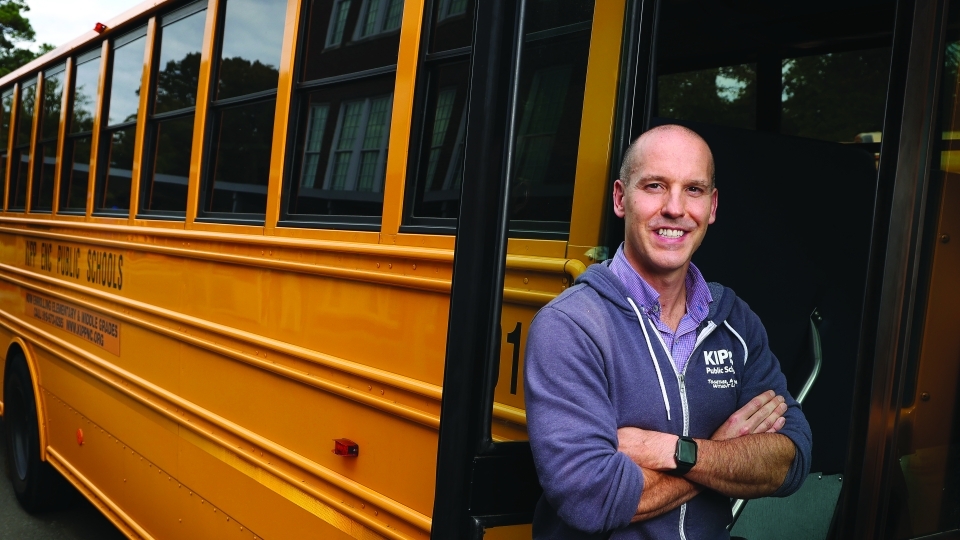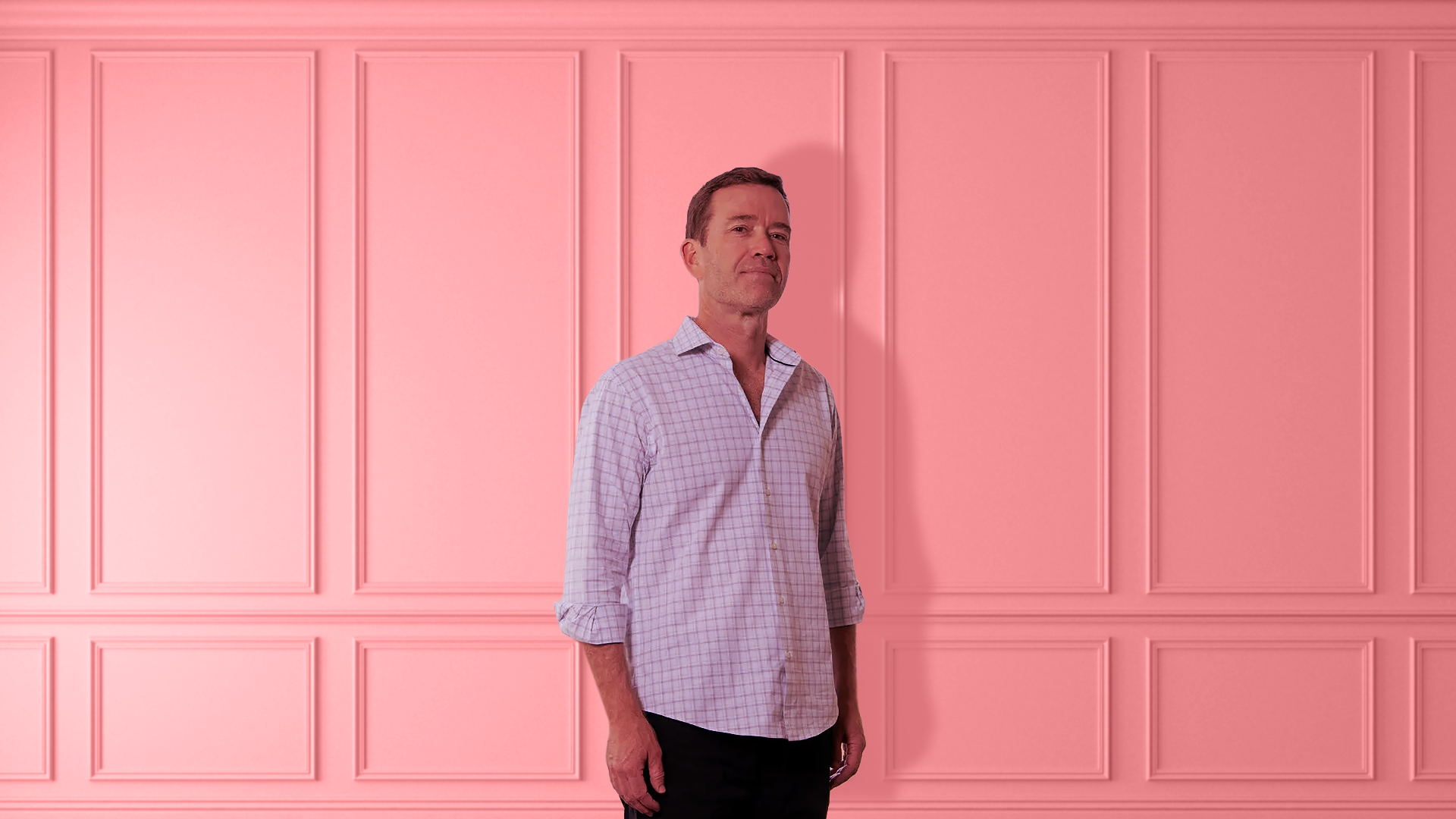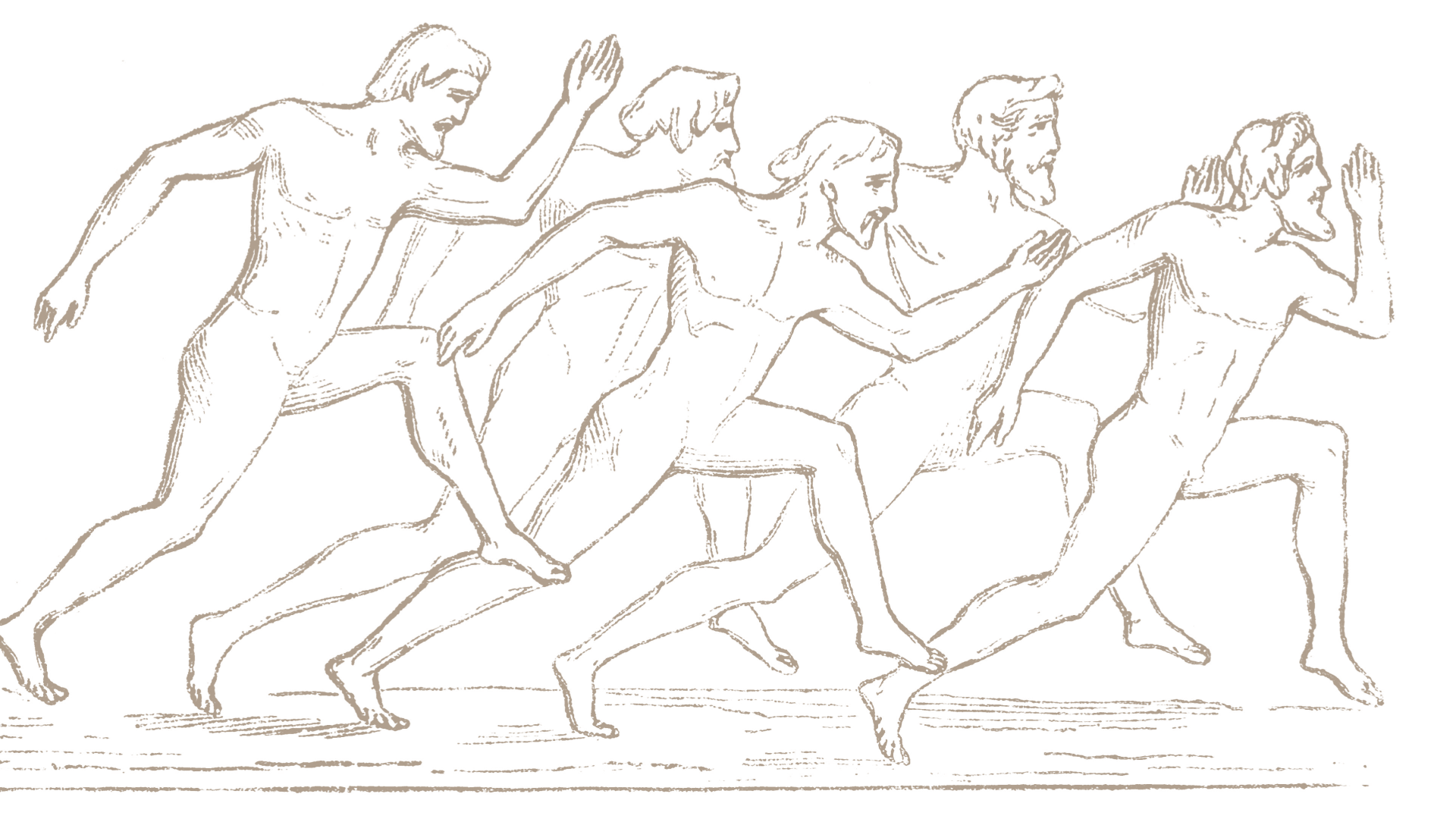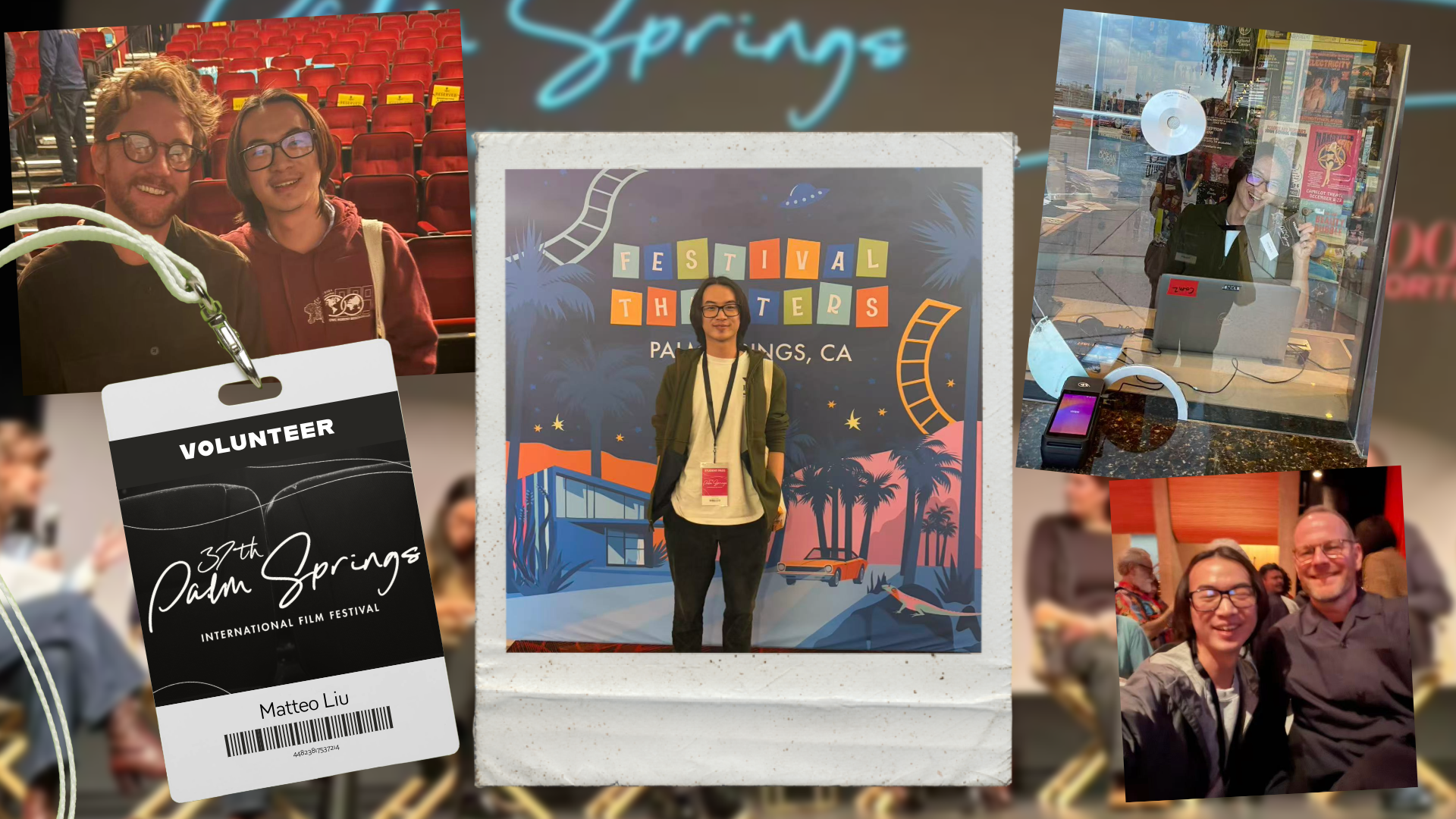Few Degrees on Death Row
January 24, 2024
- Author
- Mary Elizabeth DeAngelis

A few things struck Tim Saintsing ’98 about North Carolina’s Death Row.
First, that Black and brown defendants had a much greater chance of getting the death penalty than white counterparts. Close behind race came education. Low academic achievement often preceded a death sentence.
Saintsing evaluated that data for a senior year political science capstone project at Davidson College. It has guided him since.
“That put me on a path, to want to understand, and to want to be a part of how to not make that so,” Saintsing says. “Where are our educational resources going—who’s winning, who’s losing?”
That put me on a path, to want to understand, and to want to be a part of how to not make that so. Where are our educational resources going—who’s winning, who’s losing?
He earned a master’s degree in public policy at Duke University before starting a career in public education. He believes that if every child had access to a great education, intergenerational poverty cycles would break.
Saintsing co-founded the country’s first boys-only charter school in Brooklyn’s Bedford-Stuyvesant area. He’s now executive director of KIPP NC, a collection of highly regarded public charter schools. He’s also a college trustee.
KIPP (Knowledge is Power Program) has 280 public charter schools serving about 120,000 students in the U.S. Most are Black and Latino; some 90 percent come from lower-income families.
Charter schools receive state funding but have more freedom with budgets, curriculum and calendars. KIPP strategies include extensive teacher training on supporting kids from traditionally under-resourced communities.
Some public education proponents complain that charters divert local school funding.
States like North Carolina have also increased funding for vouchers that help families—in many cases from the middle class—pay for private schools. Saintsing defends what KIPP, which serves about 3,000 students from the state’s economically poorest rural and urban areas, provides.
“States should not be funding private schools. But that’s not what KIPP is. We establish public charter schools in communities where choice is non-existent,” he says. “If the local school district isn’t serving your student and hasn’t for generations, we offer a choice for families who want something different.”
Saintsing says too many schools fail to close learning gaps that too often fall along class and racial lines, and that his Davidson research 25 years ago remains true today:
“You don’t see a lot of bachelor’s or master’s or doctoral degrees on Death Row.”
Tricia Dean’s daughter, Ja‘Niyah, started kindergarten online at a public elementary school during the pandemic. Dean was battling breast cancer; they kept outside contacts limited. When Ja’Niyah started in-person learning, other students bullied her.
Dean enrolled her at the KIPP school near her Durham home in first grade and Ja’Niyah, now a second grader and aspiring marine biologist, loves it.
“She sees teachers who look like her,” Dean says. “It feels like a family where everyone knows each child’s needs and supports each other. She’s thriving.
“In kindergarten, she used to always ask me if she could stay home. She dreaded recess. Now she can’t wait to go to school, and she absolutely loves recess.”
Return to And Education for All: These public-school educators teach, lead, counsel, nurture, care.
This article was originally published in the Fall/Winter 2023 print issue of the Davidson Journal Magazine; for more, please see the Davidson Journal section of our website.



